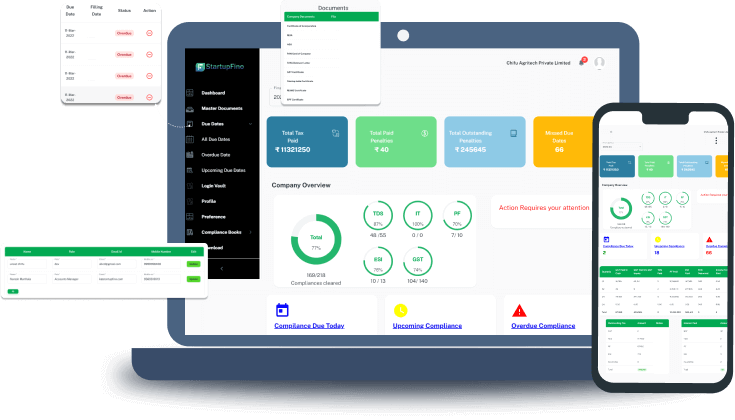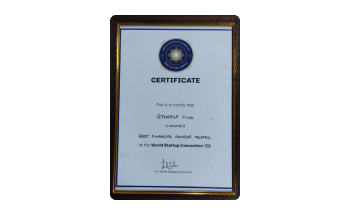An official contract that is signed by both the employer and the employee is known as an employment agreement. Such an employment agreement determines each party's obligations and rights in the employment. A fair contract used in labour law to transfer rights and obligations between parties may also be referred to as the employment contract.
An employment agreement simply forms a formal contract, which, in clear terms, outlines what the terms, compensation and expectations of both the parties to such agreement would be. It's a comprehensive written document capturing roles, obligations and other such important details, having full authority and legal enforceability throughout the country.
When is an Employment Agreement Necessary?
An employment agreement becomes necessary in certain situations, despite the common practice of using appointment letters in day-to-day business operations. Employing a proper employment agreement proves beneficial, especially when it comes to retaining key employees. Such agreements are typically utilised in the following scenarios:
- Senior Management Employees: High-ranking management staff who play important roles in the business' operations and have access to sensitive information must have employment agreements in place.
- Short-Term Contract Employees: It is advisable to create an employment contract that explains the precise job requirements and specifies the length of the employee's employment when recruiting people on short-term contracts.
What are the Types of Employment Contracts?
Various types of employment Agreements cater to different employment statuses. Different Types of Employment Agreements in general use are:
- Permanent Employment Contracts: Designed for employees working regular hours (full-time or part-time), receiving salaries or hourly rates, with an expectation of continuous employment until termination by either party.
- Temporary or Fixed-term Employment Contracts: Intended for employees hired for a specific period, whether full-time or part-time. Alternatively, it applies to employees engaged on a temporary basis without a fixed end date, but termination is possible with prior notice.
- Executive Employment Contracts: These contracts establish the contractual duties and expectations between a highly compensated executive and an employer. Such agreements are subject to negotiation between both parties and may involve legal and professional assistance from experts like StartupFino.
Additional Employment Service Agreements that are used comprise:
- Freelance Employment Contract: Pertains to engagements with individuals providing services on a freelance basis, typically for a specific project or task, with defined deliverables and payment terms.
- Independent Contractor Agreement: Covers engagements with independent contractors who operate as separate entities, responsible for their own business operations and liable for delivering contracted services.
What are the Benefits of an Employment Agreement?
There are a number of benefits of using an employment agreement while conducting business. Some of these are mentioned below:
- Clarity: An employment agreement provides clear terms and conditions of employment, including job responsibilities, working hours, compensation and benefits, ensuring both the employer and employee have a clear understanding of their rights and obligations.
- Legal Protection: It offers legal protection to both parties by establishing a formal and documented relationship. It helps in resolving disputes and conflicts by referring to the agreed-upon terms.
- Employee Rights: An employment agreement outlines the rights and entitlements of the employee, such as leaves, holidays, medical benefits and other statutory benefits mandated by Indian labour laws.
- Confidentiality and Non-Disclosure: It can include clauses that protect the employer's confidential information and trade secrets, preventing employees from disclosing sensitive information to competitors or unauthorised parties.
- Non-Compete and Non-Solicitation: Employment agreements can include non-compete and non-solicitation clauses, restricting employees from competing with the employer's business or poaching clients or employees after leaving the company.
- Termination Conditions: It specifies the conditions and procedures for termination, including notice periods, severance pay and disciplinary processes, ensuring a fair and transparent approach to termination.
- Intellectual Property: The agreement can address ownership and protection of intellectual property created by the employee during their employment, ensuring that inventions, designs or creations belong to the employer.
- Compliance with Labour Laws: An employment agreement ensures compliance with relevant labour laws in India, protecting both the employer and employee from legal risks and penalties.
- Clauses for Dispute Resolution: It can include provisions for dispute resolution, such as mediation or arbitration, enabling the parties to resolve conflicts outside of the court system, saving time and costs.
- Stability and Security: Having a well-defined employment agreement provides stability and security to employees, as it sets expectations and safeguards against arbitrary changes in employment terms or conditions.
What are the Features of an Employment Agreement?
An employment agreement needs to contain some basic features, which include:
- Parties involved: Clearly identifies the employer and the employee entering into the Agreement.
- Job title and description: Specifies the position or job title, as well as the duties and responsibilities of the employee.
- Compensation: Outlines the details of the employee's salary or wage, including payment frequency and any additional benefits or allowances.
- Working hours: Defines the regular working hours and days of the week, along with any provisions for overtime or shift work.
- Probationary period: Indicates if there is a probationary period during which the employer can assess the employee's suitability for the role.
- Duration: Specifies whether the employment is for a fixed term or indefinite duration.
- Termination clauses: Outlines the conditions under which the Agreement may be terminated, including notice periods, termination for cause and severance pay.
- Leave entitlement: Defines the employee's entitlement to annual leave, sick leave, maternity or paternity leave and any other types of leave as per applicable labour laws.
- Intellectual property: Addresses ownership and protection of intellectual property created by the employee during the course of their employment, ensuring it belongs to the employer.
- Dispute resolution: May include provisions for resolving disputes, such as through mediation, arbitration or referral to a specific jurisdiction's courts.
- Governing law: Specifies the jurisdiction and laws that govern the Agreement.
- Amendments: Outlines the process for making changes or amendments to the Agreement and the need for mutual agreement.
- Signatures: Requires signatures of both the employer and the employee to indicate their acceptance and agreement to the terms and conditions.
What are the Main Clauses to be Included in an Employment Agreement?
The major and essential clauses to be contained in the draft of an employment agreement are as given below:
- Appointment: Specifies the terms and conditions regarding the appointment of the employee, including the position or designation.
- Responsibilities: Outlines the duties, roles and responsibilities of the employee.
- Wages: States the remuneration, including wages, commissions, incentives, benefits and pension requirements. Also specifies the payment period for wages.
- Termination: Covers grounds for termination, including acts of misconduct by the employee.
- Incapacity: Addresses situations where the employee becomes permanently disabled, incapacitated or dies, impacting their ability to carry out their responsibilities.
- Confidentiality: Prohibits the employee from disclosing or using confidential information provided by the employer.
- Data Protection: Ensures compliance with provisions related to data protection and prevents any breach of information.
- Indemnification: Holds the employee liable to indemnify the employer for any losses directly or indirectly caused by the employee.
- Non-Compete Clauses: Applies to employment agreements between companies and executives, such as directors and shareholders. Includes guidelines for reasonable and permissible non-compete clauses within specified geographic limits.
- Governing Law: Specifies the governing law that will apply to the employment Agreement, addressing legal jurisdiction and court procedures.
What is the Procedure for Preparation of an Employment Agreement?
The Procedure for preparation of an Employment Agreement is as given below:
Initial Consultation:
- Skilled professionals like StartupFino’s expert team must be engaged to discuss the process and understand the specific requirements for an Employment Agreement.
- During this consultation, the professional will gather relevant information about the organisation, the nature of employment and any specific provisions or concerns that may arise.
Determining Objectives:
- Based on the information obtained, the professional will assess the objectives and purposes of the Employment Agreement.
- They will discuss the key elements that need to be included in the agreement, such as job responsibilities, compensation, termination clauses, confidentiality provisions and any other specific requirements.
Drafting of the Employment Agreement:
- After understanding the organisational needs, the professional will proceed to draft a comprehensive Employment Agreement tailored to the organisation's requirements.
- The agreement will be drafted in a legally sound and clear manner, incorporating the necessary clauses and provisions to protect both parties' interests.
Review and Revision:
- The drafted Employment Agreement will be shared for review and feedback.
- The parties will have the opportunity to carefully examine the agreement, ensuring that it aligns with their expectations and addresses all the necessary aspects of the employment relationship.
- Any requested revisions or modifications can be discussed and incorporated into the final version of the agreement.
Finalisation and Delivery:
- Once the necessary revisions have been made and the parties are satisfied with the Employment Agreement, the professional will finalise the document.
- The finalised Employment Agreement, prepared in accordance with the organisation’s specific requirements, will be delivered in a suitable format (e.g., printed copy or electronic file).
Timeline:
- The entire process of preparing the Employment Agreement usually takes around 3-4 working days.
- This duration may vary depending on the complexity of the agreement, the availability of information and the speed of communication between the parties concerned and the professional.
What are the Services Offered by Startupfino for Employment Agreements?
An employment agreement, subject to the regulations outlined in the Indian Contract Act, 1872, establishes the legal framework governing the relationship between employers and employees. Additionally, Indian labour laws apply to ensure compliance. The employment agreement, a vital document, acts as an overall blueprint laying out the rights, responsibilities and expectations of both employer and employees. It very clearly delineates the precise obligations and duties employees must undertake in strict accordance with the contractual provisions.
Startupfino is a company that specialises in offering complete services for employment agreements.We can aid with everything from providing advice in the beginning phase to ensuring that you meet all the necessary requirements and also keeping your organisation in good legal standing.
Our services include the below mentioned:
- Drafting customised employment agreements that meet the specific needs and requirements of companies operating in India.
- Providing expert advice and consultation on employment laws and regulations in India pertaining to the preparation and execution of employment agreements.
- Conducting thorough reviews of existing employment agreements, identifying areas for improvement and making necessary revisions to ensure legal compliance and optimise protection.
- Designing strong confidentiality and non-disclosure clauses to safeguard sensitive information and protect a company's intellectual property.
- Formulating non-compete and non-solicitation clauses tailored to prevent employees from engaging in competitive activities or poaching clients and colleagues after termination.
- Assisting in the creation of termination and severance clauses that adhere to Indian labour laws, ensuring fair and legally compliant processes.
- Ensuring compliance with relevant labour laws, statutes and regulations in India so as to reduce any legal risks and simultaneously protect the rights and interests of both employers and employees.
By availing our services, entrepreneurs can avoid the negative outcomes of non-followance of rules and compliances. StartupFino works hard to provide services that are prompt and effective, so you can manage your business without any issues and without facing penalties or problems.































































